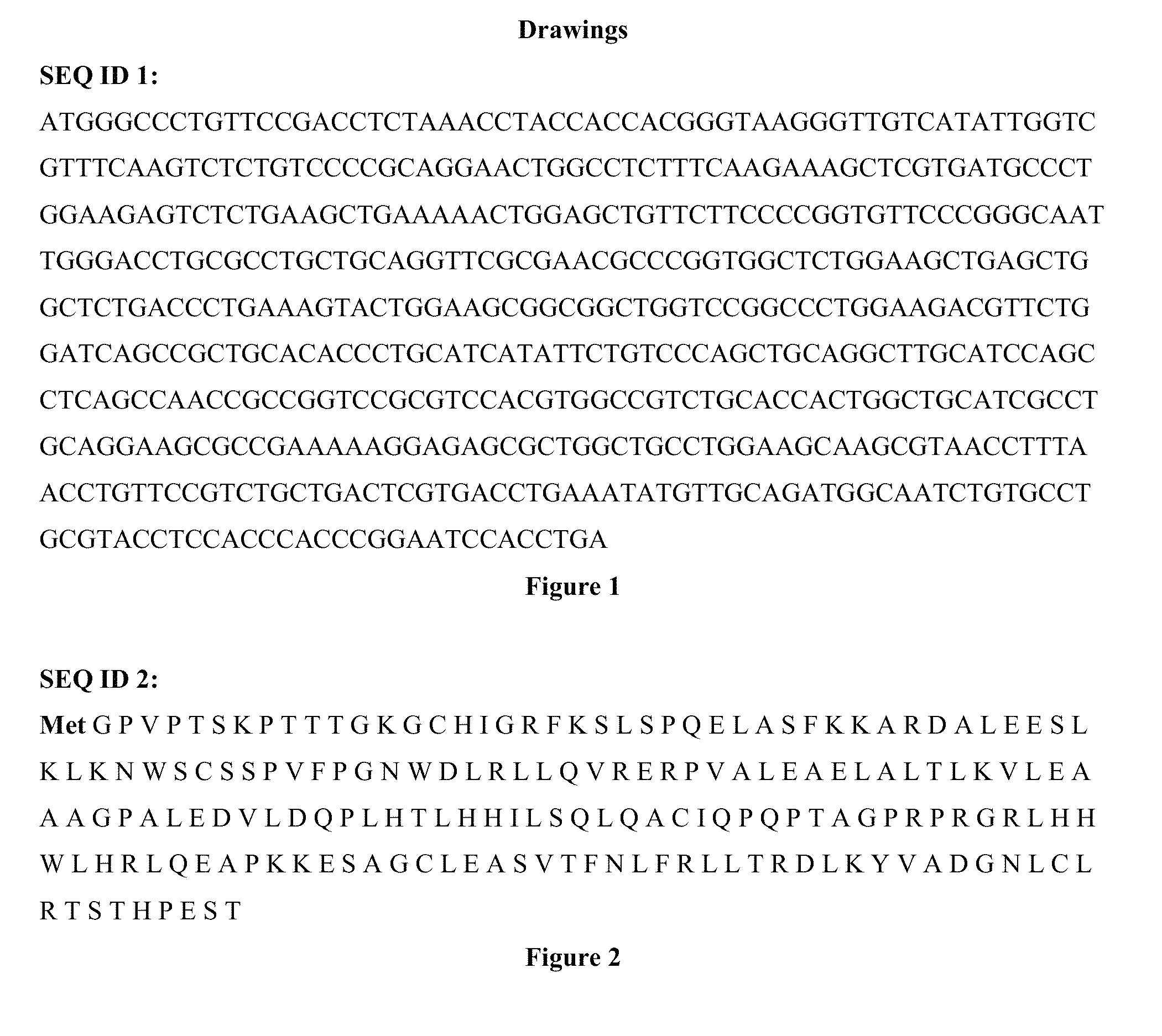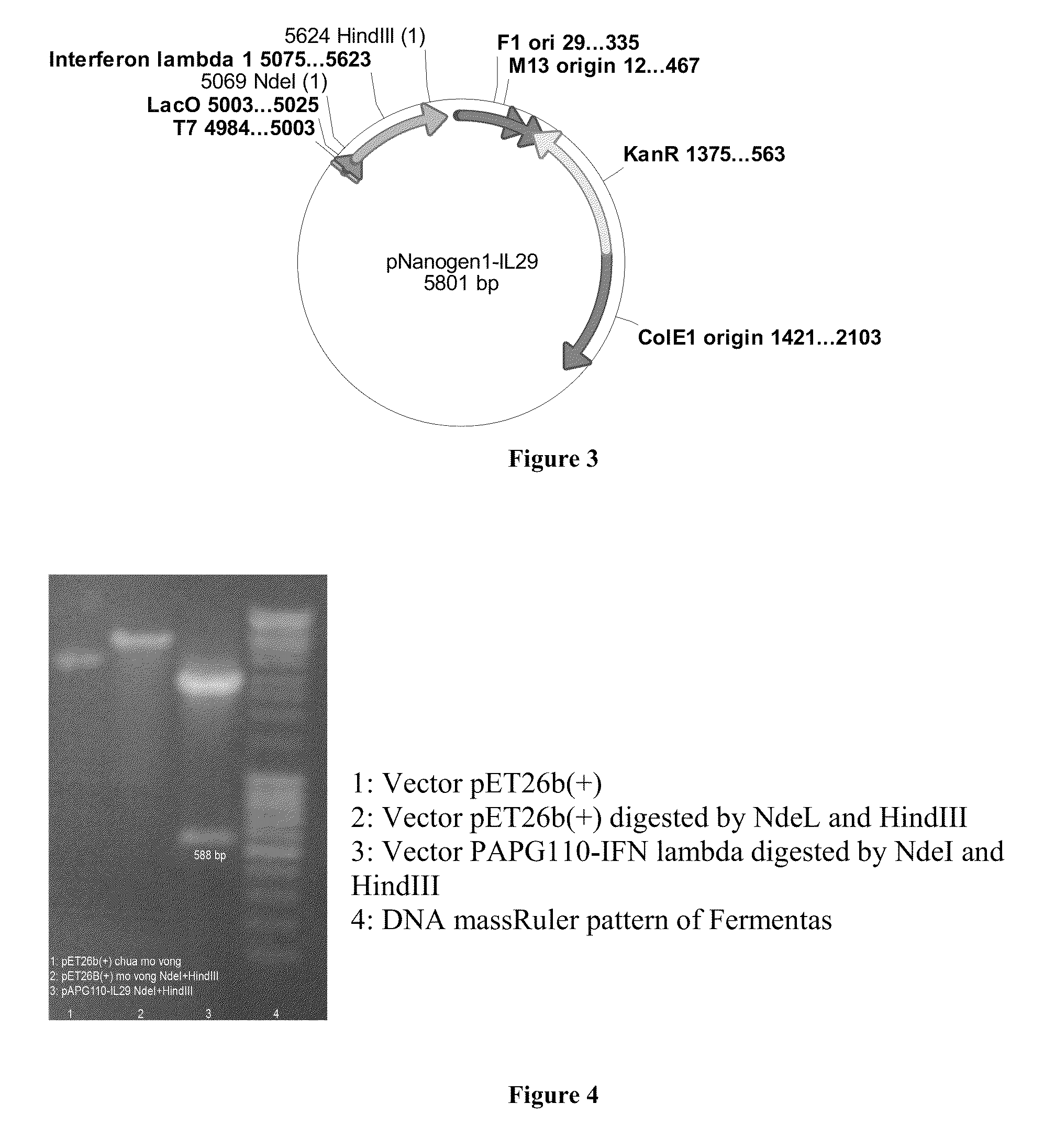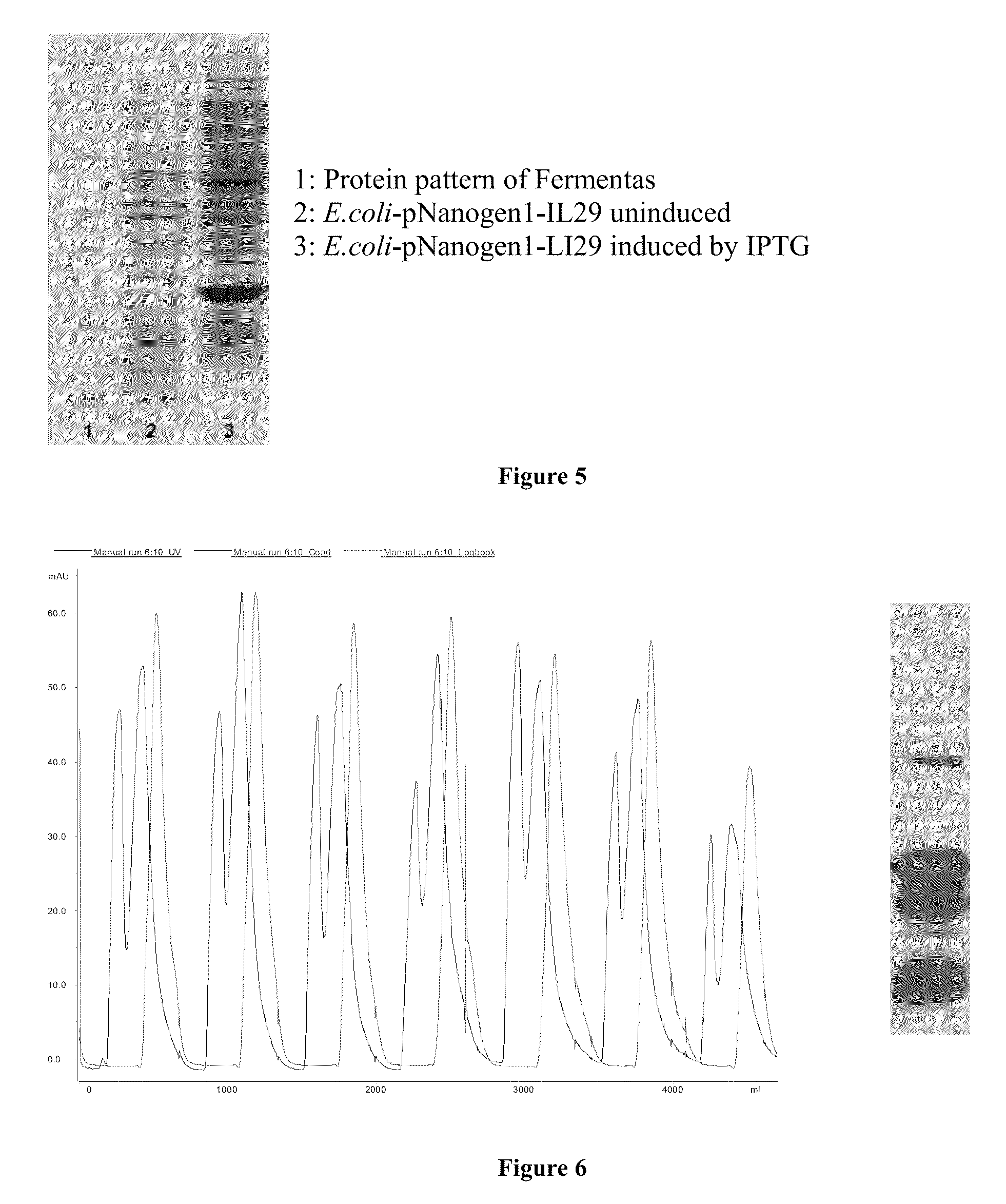PEG-interferon lambda 1 conjugates
a technology of interferon and conjugates, applied in the field of pegylated derivatives, can solve the problems of limiting treatment, many side effects, incomplete treatment of patients, etc., and achieve the effects of resisting filtration, improving stability, and prolonging the half-life in circulation
- Summary
- Abstract
- Description
- Claims
- Application Information
AI Technical Summary
Benefits of technology
Problems solved by technology
Method used
Image
Examples
example 1
Process for Preparing E. coli Strain Containing the Gene Encoding Human Recombinant Interferon Lambda 1 (IFNλ1)
[0064]The gene encoding IFNλ1 was artificially synthesized based on the protein sequence data available from NCBI or other databases. The novel method provided herein reduces the time required to isolate the gene but still provides a result as accurate as the conventional method. The nucleic acid sequence used to produce IFNλ1 in Nanogen Pharmaceutical Biotechnology Co., Ltd. is shown in FIG. 1 and the amino acid sequence of this protein is shown in FIG. 2.
[0065]The expression vector pNanogen-IL29 (comprising the T7 transcription promoter region, the IFNλ1 transgene, the T7 reverse priming site, the T7 transcription terminator, the f1 origin, the kanamycin resistance gene, and the pUC origin of replication) was specifically designed to enable high expression of the protein and facilitate fermentation for industrial production of a large quantity of IFNλ1. FIGS. 3, 4 show th...
example 2
Process for Fermentation of E. coli to Produce Human Recombinant IFNλ1
[0067]The fermentation process was carried out in a 140 liter fermentation tank with nutrient medium at a temperature of 37±0.5° C., air pressure 0.5 m3 / h, pH 7.0±0.2, stirring rate of 300 rpm and the pH was maintained at between 6.8-7.2 by adding H3PO4 or NH4OH. After 8 hours (when E. coli grew in log phase is the time that cells develop most efficiently), the temperature was cooled to 30±0.5° C. and the stirring rate was reduced to 200 rpm to start the process for the generation of IFNλ1. The fermentation process was stopped after 4 hours and the cold product was centrifuged at 6000 rpm to obtain biomass.
[0068]The biomass was disrupted in a cell lysis solution (12 ml solution per 1 g wet biomass) by homogenizing in a homogenizing device. The temperature was maintained at 4° C. for 1 hour, then the cells were disrupted 2 times by an ultrasonic device. The resulting suspension was centrifuged at 6000 rpm for 30 mi...
example 3
Process for Purification of Human Recombinant IFNλ1
[0071]IFNλ1 was refolded by dissolving the inclusion bodies in refolding solution (25 mM Tris buffer, 1 mM EDTA, 1.2M guanidine, pH 8.2) such that the final concentration of the inclusion bodies were 500 μg / ml. The mixture was then kept at 2-8° C. for 16-24 hours. The resulting mixture was desalted before being subjected to a purification step on a Sephadex G25 column. The salt exchange buffer was a phosphate buffer (10 mM, pH 8.0). In the step “cation 1”, the desalted mixture was loaded onto a Sephadex G25 column (this column was prefilled with CM-Sepharose FF gel and equilibrated in 10 mM phosphate buffer pH 8.0), the product was eluted using 10 mM sodium phosphate+0.5M NaCl pH 8.0. The resulting protein solution was desalted and chromatographed as above (step “cation 2”). The protein solution was then filtered through a gel column to give the product human recombinant IFNλ1 with purity greater than 95% (see the spectrum and elect...
PUM
 Login to View More
Login to View More Abstract
Description
Claims
Application Information
 Login to View More
Login to View More - R&D
- Intellectual Property
- Life Sciences
- Materials
- Tech Scout
- Unparalleled Data Quality
- Higher Quality Content
- 60% Fewer Hallucinations
Browse by: Latest US Patents, China's latest patents, Technical Efficacy Thesaurus, Application Domain, Technology Topic, Popular Technical Reports.
© 2025 PatSnap. All rights reserved.Legal|Privacy policy|Modern Slavery Act Transparency Statement|Sitemap|About US| Contact US: help@patsnap.com



